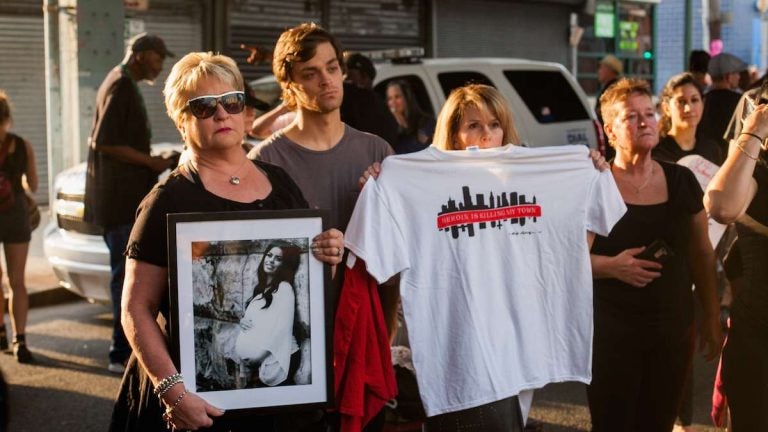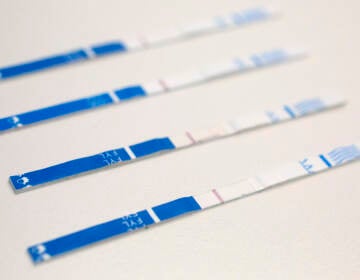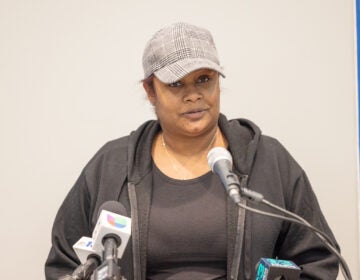Wolf opioid order could open door to better treatment, prevention in Philadelphia
Stephen Lankenau, a professor of Community Health and Prevention at Drexel University, spoke with WHYY's Jennifer Lynn about Gov. Wolf's disaster emergency declaration for Pa.
Listen 6:13
Donna Morgan, (left), stands with a picture of her daughter Brittany who died of a heroin overdose in May 2017 along with her son Nathan and friend Robin D'Angleo whose son is in recovery for heroin addiction. (Brad Larrison for NewsWorks)
Pennsylvania Gov. Tom Wolf made history on Wednesday when he issued the first disaster emergency declaration for a public health crisis — the heroin and opioid epidemic. The executive order is a 90-day “full-court press” intended to further open channels of communication and response to the crisis.
Stephen Lankenau is a professor of Community Health and Prevention at Drexel University’s Dornsife School of Public Health, and has studied substance abuse for about 20 years in three major cities, including Philadelphia. He spoke with WHYY’s “Morning Edition” host Jennifer Lynn about what Wolf’s disaster emergency declaration means.
Listen to the audio above to hear the full conversation.
Interview Highlights
On whether Wolf’s declaration goes far enough to make a difference:
“I think it’s an important first step. It certainly does improve some inner-agency communications. It helps to reduce some barriers for access to Naloxone along with barriers to treatment. It doesn’t seem to offer any new immediate funding for the problem, so I think following the 90-day period, hopefully, there will be additional resources dedicated to the problem that could really have an important impact.”
On how the declaration loosens some rules to treat opioid addicts more quickly:
“One is when EMTs show up to an overdose event, they administer Naloxone and apparently the rules have prevented them from leaving behind Naloxone. So now they can offer someone who just was reversed additional doses of Naloxone that could prevent future overdoses, as well as some barriers around getting into drug treatment. Someone who is homeless would often need to present a birth certificate to get into drug treatment, so those kinds of barriers have been eliminated.”
On whether the move could help pave the way to ‘safe injection sites’ in Philadelphia:
“I think it could. Governor Wolf said this is not a magic bullet, this 90-day period, but it’s an opportunity to work with communities and find out what communities really need. So if Philadelphia moves ahead and says this is something we want, hopefully the governor and the state would put forward funding and other resources to make it a reality in Philadelphia.”
WHYY is your source for fact-based, in-depth journalism and information. As a nonprofit organization, we rely on financial support from readers like you. Please give today.





